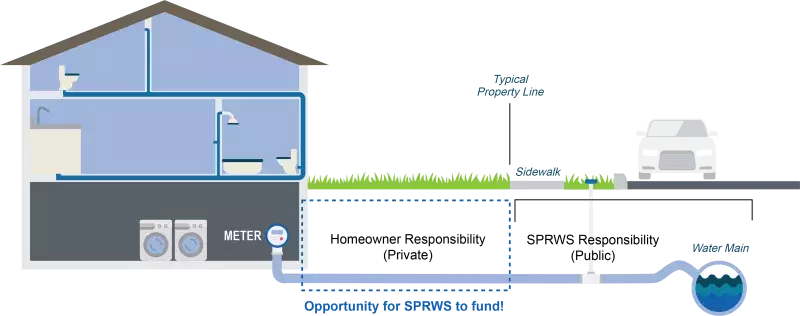Lead Overview
What is lead and why is it a problem?
Lead is a common metal found in air, soil, household dust, and water. It is also found in consumer products, some types of food, pottery, pewter and lead-based paint. If breathed in or swallowed, lead can build up in the body. If too much lead enters the body, it can hurt the brain, nervous system, red blood cells, and kidneys. Children, infants, and pregnant women are at greater risk.
How does lead get into household water?
The most likely sources of lead in your household water are lead pipes, lead solder, or brass fixtures in your plumbing. Lead water services were primarily installed in Saint Paul homes built before 1926 and in some homes built between 1927 and 1948. Water leaving the SPRWS water treatment plant does not contain lead; lead enters your water after it leaves the plant.
Lead Free SPRWS
For information about the Lead Free SPRWS service line replacement program, visit our Lead Free SPRWS page.
